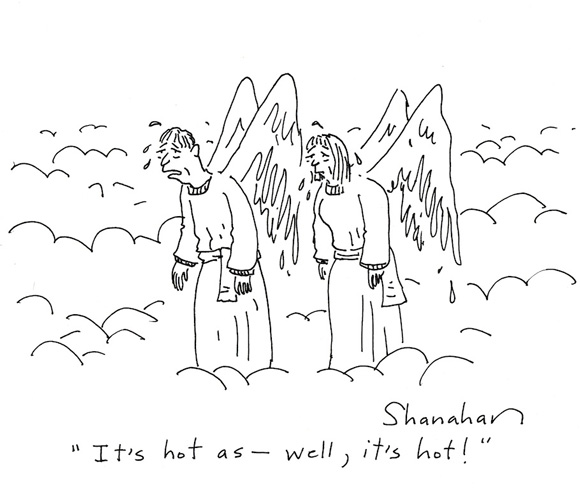
The Earth is heating up because gases produced from human activities -- including carbon, soot and methane from burning coal, oil, and gas for fuel -- are building up in the atmosphere, trapping the sun's heat. This pollution acts like a thick blanket over our planet. We are throwing off the natural balance of our atmosphere, and raising the planet's average temperatures. This is the "greenhouse effect." Of course there were catastrophic climate events in the past. But they weren't caused by human activity.
How Does Climate Change Affect Our Health?
Hot days and air pollution mean ripe conditions for ground-level ozone, or smog, which forms when pollutants from cars, trucks and smokestacks mix with sunshine. Ozone is a powerful oxidant that can irritate the airways, causing a burning sensation, coughing, wheezing, and shortness of breath. Ozone has been linked to a host of maladies, including premature mortality, heart failure, increased hospital admissions and emergency room visits for respiratory causes among children and adults with asthma and inflammation of the lungs.
3 Big Weather Events That Affect Our Health
- Heat and mega-heat waves. These cause air-pollution problems related to higher temperatures, like ozone levels. Heat waves cause massively high air conditioning use, which only sends up more greenhouse gases and makes the problem worse.
- Heavy rainfall. A warmer atmosphere holds more moisture, and causes more heavy rainfalls and storm surges. We're also seeing an increase in insect born diseases carried by the bugs that thrive in moist conditions.
- Drought. In areas of the Great Lakes, water levels are 25 inches lower than normal due to a lack of winter ice cover and the dry summer. Precipitation in the Rio Grande Basin is expected to decline by more than 2 percent at mid-century. Texas and the Southwest have been suffering from severe drought conditions. Food prices increase, as less food can grow. Increased drought is also increasing the severity and number of wild fires.
Our Children Need A Safe, Clean Future
As temperatures continue to climb, our climate will worsen. The World Bank concluded that the world could warm by 7.2 degrees Fahrenheit by the end of this century if concerted action is not taken now. The Global Estimates report reveals that 32.4 million people were forced to flee their homes in 2012 by disasters such as floods, storms and earthquakes.
It's not too late to step off this roller coaster and make a significant impact on future climate change and its effects on our families. When governments, communities, individuals, and businesses work together to curb climate change, we can reduce the amount of heat-trapping greenhouse gas pollution released into the atmosphere and lower the risk of severe consequences.
3 Things You Can Do Right Now:
- Push for clean energy. Renewable energy, such as wind and solar, and alternate forms of fuel, will reduce the greenhouse gases causing climate change.
- Advocate for strong regulations. America should be leading the world in cleaning up emissions from power plants. Our children need strong laws to protect their health.
- Join Moms Clean Air Force actions through the website, Facebook, and Twitter. Tell Washington: Listen to parents. PROTECT OUR PLANET -- and protect our children's futures.
Cartoon: Danny Shanahan
